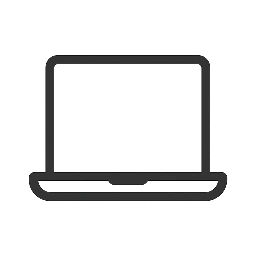What Travel Taught Me About Shareholder Value
After two years of traveling the world, I met countless people, collected unforgettable experiences, and—like so many before me—finally “found myself.” I looked inward, dug deep into my soul, and discovered the single most important truth I had been missing all along:
The true meaning of life… is maximizing shareholder value.
…
…
…
No, of course not😂. Obviously, that’s not what life is about. And, even moreso, I’m not going to to say I travelled to make myself a better employee. I didn’t. I did it for me, for my personal reasons, and to make myself a better human.
But, some lesson I learned travelling are relevant to my career. Not all of them, and some of of my biggest lessons have no place in a meeting room. But there’s a lot of overlap between being a good human and a good employee, and those are worth sharing.
And so here it is: 8 lessons I learned while traveling that can help you maximize shareholder value.
Approach Strangers!
Engineers are stereotyped as introverts — and I used to be one. I’d spend middle school lunch with my Alphasmart (a glorified typewriter) instead of friends. These days, even extroverted friends comment on my ability to approach strangers. I’ve started many relationships, sometimes for other people, just by saying hi.
The best thing that can happen is you make a life-long connection. The worst that happens? They ignore you, get annoyed, or the talk fizzles. I’ve had this happen hundreds of times while traveling, and it’s really not that bad. It’s not a reflection on you — people carry baggage and assumptions long before you open your mouth. If someone doesn’t like you, it’s okay, because plenty of others will. And when it works, it might be the start of something that lasts a day, a month, or forever. Those odds are worth it.
A few hints:
- Approach with curiosity.
- Compliment what someone did, not who they are.
- Push through the first 30 seconds — people often warm up once they see you’re genuine.
And how does that help you at your job? By talking to people outside your team, learning their stories, and building connections. Stronger relationships make collaboration more effective and more fun.
Find Your Legacy
I heard a story while traveling about a man deciding what to do with his money after he died. It wasn’t a fortune, but it was enough to matter. He had a big family, and he worried that dividing it would drive them apart. So instead, he set up a trust that could only be used for a massive family vacation every year. Thirty-plus people, all together, generation after generation. His legacy wasn’t money — it was keeping his family connected.
So what’s yours?
When I was traveling, I had time to stop and think. Over months of reflection, I realized mine: building community and moving the world forward technologically.
Legacy doesn’t guide your day-to-day, but it does shape the big decisions: your career, your family, where you invest your time. And when those choices line up with your legacy, you can move through life with more conviction and certainty.
Even in the workplace, knowing your legacy matters. Maybe the job isn’t your legacy, but it can serve it — building your skills, your network, or your savings so you can chase what really matters. When you know that, you show up more confident, alive, and happy. And people gravitate toward that — which, in the end, makes you more influential at work.
The World is Bigger Than Your Bubble
This is probably the biggest lesson I learn again and again: the world is bigger than your bubble.
I know people in big tech whose company stock 10x’d. Some are sitting on tens of millions, and yet they still wake up, sit in traffic, and grind away as just another cog in the machine. I also know plenty of people with “FU money” who keep doing only what they’ve always done.
My belief here is people get stuck in their bubble and can’t imagine life outside of it. If you’ve got $xx million, take a break, see the world, pursue other passions. Maybe all you do is realize you’re happy where you’re at. And that’s okay, but now you know. Maybe you find something better. But I don’t believe we know the right path until we’ve taken the wrong one a few times.
And so how does this apply to a job? When you’ve tested different paths and know you’re on the right one, you show up happier and more grounded. People around you feel that confidence, and that makes you a stronger pillar in your team, your community, and your company.
Humanize People
Travel gave me the chance to meet people all over the world. This included meeting engineers who worked for nearshoring, offshoring, or just satellite offices of all the big tech companies you and I love(or love to hate). I met an engineer in Morocco, one of the nicest people I met travelling, where we got into deep discussions about UI build systems for hours. I met a hilarious dev in Argentina that insisted Mate should be a part of every developers workflow — and honestly he’s right. These were brilliant, thoughtful, funny people with creative solutions, working with the same languages, frameworks, and tools I use every day.
And yet, in tech, I’ve often heard their perspectives dismissed. The reason is often laundered through something that sound professional — “timezone misalignments,” “language barriers” — but behind closed doors, I would hear whispers of xenophobia. And that’s foolish.
This mindset kills connection. It shuts down trust, collaboration, and the kind of back-and-forth that actually produces great work. If you assume someone can’t meet you at your level, you’ll never hear their insights, and they’ll stop wanting to hear yours. Everyone loses — you, them, and the business.
The world moves fast: distributed teams, global markets, new industries appearing overnight. If your advantage is just “I’m better because I’m from X place,” you’ll get left behind when your skills and attitude aren’t up to snuff.
So drop the prejudice. Build trust. Treat people for what they are: other engineers solving the same problems you are, with the same tools, on the same planet. When you do, you can build bigger and better than you ever could alone.
Seek to Understand and Be Understood
One of my last managers told me this, and it stuck: seek to understand and be understood. It was meant in an engineering way, but I’ve found it’s true everywhere.
Traveling, one of my main goals was to connect and understand — how people decided to live, not just how they were required to. There was always a reasoning, and within that, an understanding to be had.
In relationships, I approach with curiosity: why does this person feel this way? When I listen and reflect back what I hear, it builds trust. I don’t have to agree — just showing I understand is enough. That trust makes people more open, and it cuts off arguments before they spiral. The same is true in reverse: when I’m understood, I feel safer, more trusting.
Professionally, the same pattern applies. Repeat back your understanding, get on the same foundation, and then explore ideas together. Agreement isn’t the goal — clarity is. When people understand your reasoning, they buy in naturally. They in turn can explain to others, and that trust cascades outward. And suddenly, you find yourself influencing large swathes of people, just because you sought understanding.
Hold Dreams Tight, Pivot When Needed
When I set out traveling, I had a list of things I wanted to do — learn to ride motorcycles, try bikepacking, go to Oktoberfest, climb big peaks. Some happened because the opportunities lined up and I jumped on them. Others didn’t, because of political unrest, bad timing, or because I wasn’t ready yet.
That’s the key to achieving: keep a list of goals, and jump on the ones that become possible when the opportunity arises.
Other times, the goal itself needs an adjustment. For example, I came back to a dream of climbing California’s tallest peaks that I’d failed at in 2018. With more preparation, a better approach, and a new definition of success (finishing at all, not just finishing in a single day), I finally pulled it off. If I’d been stubborn about the “purest” version of the goal, it probably never would have happened.
In personal or professional life, it’s the same. The more flexible you are — the more you’re willing to pivot or reframe a dream — the more chances you give yourself to succeed. Life is a set of moving targets; you just need to recognize when one is in sight, and take the shot.
Move with Kindness
Throughout most of my life, I had a lot of negative self-talk, in the form of anger and hate towards myself. And in my experience, the way you treat yourself is the way you treat others. This negative energy was a moving force in my life.
I looked at tech too, and saw people putting others down to get ahead — stories of people losing all their equity in a hostile takeover after slaving away for a decade, people getting stack ranked out. This reflected the hate and anger I felt in my heart.
I thought that success was a zero sum game: someone had to lose so someone else could win; and so I was always prioritizing myself. And then two things happened: I started working at Remind, a company that I truly believed cared about its employees, and I started surrounding myself with friends who led their lives heart-forward. In both my personal and professional life, people leading with kindness were just as successful as those who weren’t. AND they seemed much happier.
So slowly, through a lot of therapy, I switched my mentality. It was a win-win-win: I was more aligned with my values, I treated myself better, and I treated the world better.
Leading with kindness builds loyalty, trust, and alignment. And in the long run, it creates more opportunity than fear ever could.
Don’t Pin Your Self-Worth to Any One Thing
In 2020, I had a bad snowboarding accident that destroyed my shoulder. I had multiple surgeries over the next three years, and it always felt like I was recovering from the last one. I wasn’t sure if I’d ever be able to do the outdoor activities I loved again. It sent me into a depression — but what helped me was realizing I had many places to draw enjoyment from, not just my outdoor pursuits.
I’ve seen the opposite too. A friend’s entire identity was built around climbing, and when an injury took that away, they spiraled. They no longer knew who they were.
The lesson: your identity can’t hinge on a single thing. Just like you wouldn’t put all your money in one stock, don’t tie your self-worth to one pursuit. Because if you lose it, you risk losing yourself too. Having multiple sources of identity — relationships, work, different interests — gave me something to hold onto when I couldn’t do what I loved most.
And how does that apply to work? Diversify. If you’re building an MVP, make sure there are backups in the critical path. If you’re selling, have a plan if the deal falls through. The unthinkable always does happen — and when it does, you’ll be ready.
Conclusion
Like I said, travel has never been about becoming a better employee. It’s about becoming a better human. It teaches lessons about people, growth, and perspective.
And if those lessons happen to boost shareholder value along the way… well, that’s just a bonus 😉

